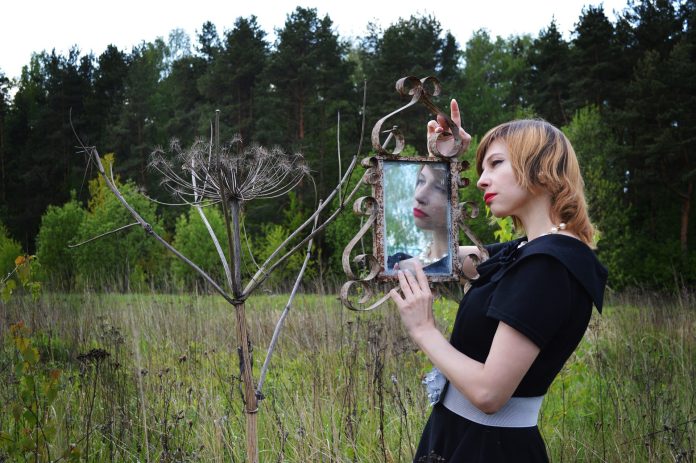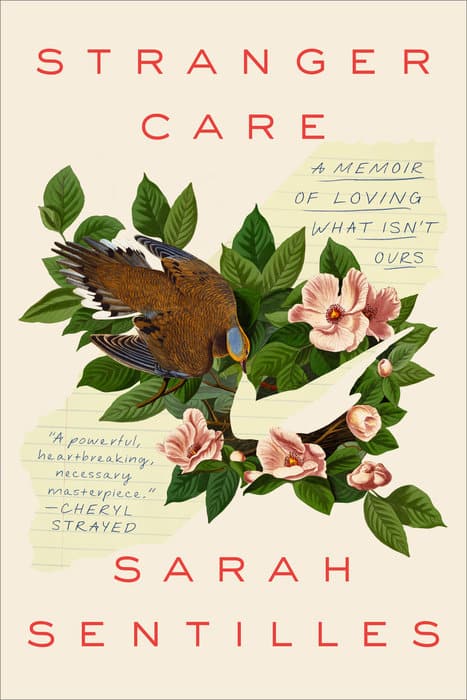by Kristine Lloyd
In spite of knowing I was happiest in the company of others, I moved from a three-story apartment building to a cabin in the urban woods a few years ago, across town from most of my friends. The small A-frame, tucked behind my landlord’s house, charmed me with its tiny backyard bridge to nowhere, serene Japanese maples, and ancient wind chimes whispering outside the kitchen window. Socializing became a chore that required triangulating various routes to avoid traffic, then I had surgery and was laid up for months, so I holed up more and more: eating, shopping online and watching movies on my laptop. This was a choice, and I could make a different one whenever I felt like it, like moving to Uruguay, or joining a flash mob – until Covid hit.
I am not someone who enjoys a lot of “me” time, long baths, or elaborate self-care rituals, and yet, by virtue of living alone in an introvert’s haven like Seattle, I came to convince myself that I was, in fact, this kind of person. I even purchased an expensive evergreen-scented candle I almost never lit. I bought it at the sad, little holiday fair at work. Milling around the four or five cafeteria tables, trying not to make eye contact with co-workers whose hand-crafted goods I would never buy. I aspired to be a candle person, and though I didn’t even know the woman selling them, who must have worked floors apart from mine, I spent $30, because holiday cheer and a co-worker had made it, so practically a friend, which was cooler than buying it from Pier 1. I didn’t light it until three months later when quarantine started, and I searched frantically for something to lift my spirits.
I cried when I saw videos of Italians rigging up champagne glasses on long poles and clinking a cheers from their separate balconies, singing in unison. It made me long for my old apartment, sandwiched between the first and third floors, where at least I could hear yelling, moaning, singing, terrible techno-pop that synced with the throb of that vein in my temple, the scraping of chairs, the dropping of things, and the walking around in heels on hardwoods that sounded like dragging cast iron pans across the floor. Now quiet hours ticked by without so much as the sound of a plane, which before had signaled the continuous movement of people going places and doing things.
My alone-ness stung. I had willingly retreated to the woods, when I am a people person, someone who needs interaction like air. Each day lived entirely alone wore on me, drained me of finite stores of energy. I was a 47-year-old extrovert living like a hermit. It did not suit me. The constancy of quiet gnawed at my mind. I had allowed my circumstances, long before Covid, to shape me into something I wasn’t, rather than changing them – it had seemed far more exhausting to change course than to blend into the environment.
Every day was the same. The alarm sounded. I hit snooze. At 8:55 a.m., I staggered out of bed, turned on my computer, answered emails and attended virtual meetings, never fully awake, living in a radius of about five feet. I started to feel far from okay, staring out the window into the indistinguishable mass of leaves blocking out everything beyond the yard. I waited for a creature – a bird, a cat, anything – to come by and alter the landscape. Twice I saw a little brown bunny hopping by, but by the time I got up from my desk to get a closer look, it had vanished. I stared at the trees until I saw nothing: just a great, green mass. The stillness settled into me until I felt immovable. Each day I looked out, and the trees appeared closer than the day before. I longed to take a weedwhacker and slash through branches, open up a window to life, but there was a fence behind the trees. Another barrier to the world. I lit the candle, hoping to at least imbue the indoor space with coziness, but it was like trying to warm myself with a matchstick. It didn’t even make the house smell like evergreens.
I cried three times on the phone with my boss.
“How are you?” he asked. But that was all it took to unleash the tears.
“Kristine . . . you there?”
“Yeah . . . I . . . I’m ok.” This was not a sophisticated, tissue-dabbing cry. This was the kind of unintelligible, guttural sobbing that makes other people uncomfortable and fidgety. To his credit, he waited patiently while I collected myself, instead of hanging up and pretending we got disconnected.
The crying wasn’t limited to phone calls with my boss. I cried when I knocked over a bottle of cooking sherry precariously situated on the kitchen counter with all the other newly purchased groceries, and had to clean up the sprawling, sticky mess when all I wanted to do was lie down and flatten my body against the cold linoleum. I cried every time I heard my father’s voice on the phone. It had begun to develop the timbre of my grandmother’s and his older siblings in the last years of life, a weak, croaking sound that trailed off into a mumble. What if he died of Covid and I never saw him again?
I started buying Oreos, Nutty Buddy’s, things I had not eaten since childhood – the Nutty Buddy being the saddest kind of substitute for a Buddy, save for a brief moment of soothing nostalgia for summers spent dissecting the layered wafer into its disparate parts to make it seem like you were getting more. I made brownies. Perfecting their under-baked, gooeyness. I ate brownies for breakfast and brownies for dinner, until they became cloying and tired, as familiar and unappealing as isolation itself. Brownies do not make a meal, and isolation isn’t a way to live. By the end of April I knew I had to get out.
One of my closest friends, Scott, who still lived in my hometown in Alabama, called me one day to catch up. After hearing my voice and the cracking sadness in it, that same weakness in my father’s voice, like someone falling into a well, he suggested I come back home. “I think you’d be happier in Birmingham, near your friends and family.” I knew he was right and asked him if he would be willing to fly out to Seattle and drive home with me. If he said yes, that would be the deciding factor. He did not hesitate.
Scott walked into my cabin and hugged me, let me lean against him. He had risked his life, breathing in the stale, germy air of a packed airplane and a chatty flight attendant whose mask dangled from her ear, to rescue me. He’d visited before and seen my cabin and understood, that even though it was in a prime location, I was not meant to live alone in the woods. He helped me finish packing, and we headed out by late afternoon. A quiet cabin hemmed in by trees was not going to lead me to my truest self, any more than that bridge would lead to a pot of gold.
We drove 2700 miles in four and a half days. Through the lush green hills of Oregon and Northern Idaho, into the endless hypnotic flat of Southern Idaho, on to Utah’s cracked earth and towering red rocks, through the dry, bleak landscape of Navajo country. Flying past long stretches of strip mall in Albuquerque and into the indistinguishable flatlands of North Texas, Oklahoma, and Arkansas, before the final leg home.
When I pulled into my parents’ driveway in the giant yellow moving truck, they came rushing out. My mother gave me the tightest, longest hug, and we just held on and swayed like that for a while. I breathed in her life, and the warmth revived me. I was home and with a little care and feeding would come back to myself. I felt such relief, relaxing into my mother, knowing she could hold me up. Like I had survived more than Seattle, more than Covid. I had survived a starvation of connection, of feeling like I was in the world, because I had been so isolated from it, walled off in a fortress of trees.
The next morning I tried out several nooks for my new, temporary home office. I finally settled into a creaky, old desk that’s more display than functional. Within days, a tiny mess of papers and mail sprouted by my computer. It didn’t take long to make it my own. I looked out the bay window and actually saw people walking by. Young and old. Some with dogs. Others on bikes. One young man walked by barefoot four or five times that morning. I wondered if the pavement hurt his feet, and that small thing felt like connection, an imagining of someone else’s experience of the world. Beautiful, glorious people. I didn’t know who they were, and it didn’t matter. I felt a lightness. This was life. All around me. I thought to myself, the world exists, people exist, and we are all here, in this together.
~~~~~~~~~~~~~~~~~~~~~~~~~~~
Sarah Sentilles is a writer, teacher, critical theorist, scholar of religion, and author of many books, including Draw Your Weapons, which won the 2018 PEN Award for Creative Nonfiction. Her most recent book, Stranger Care: A Memoir of Loving What Isn’t Ours, is the moving story of what one woman learned from fostering a newborn—about injustice, about making mistakes, about how to better love and protect people beyond our immediate kin. Sarah’s writing is lyrical and powerful and she ventures into spaces that make us uncomfortable as she speaks for the most vulnerable among us. This is a book not to be missed.
Pre-order a copy of Stranger Care to get exclusive free access to a one-hour generative writing workshop with Sarah, via Zoom on May 25th at 7pm Eastern time. If you register for the workshop and can’t attend, a recording of the event will be available. More details here.
~~~~~~~~~~~~~~~~~~~~~~~~~~~
Anti-racist resources, because silence is not an option
~~~~~~~~~~~~~~~~~~~~~~~~~~~


